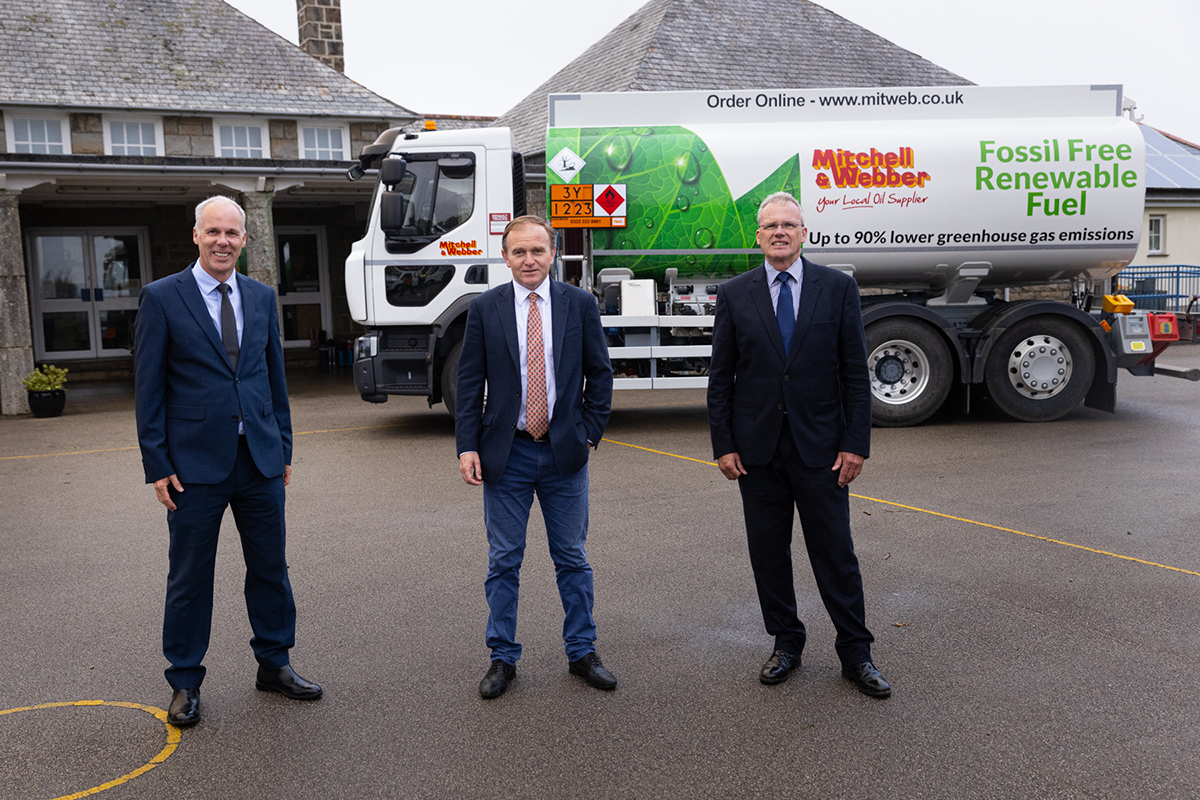
Malcolm Farrow, Head of Public Affairs at OFTEC, says the off-grid sector needs clarity but it’s been left in the dark over decarbonisation.
In 2018 the government set out its long-term plans to phase out fossil fuel heating, but what followed has been years of uncertainty and speculation. The publication of the Heat and Buildings Strategy in October 2021 set out specific proposals which finally gave some clarity over the direction of travel. However, as the ink dried, it became increasingly clear there were still many questions left unanswered, particularly for the off-grid sector.
Another year has now passed, but uncertainty remains over how homes, businesses and the wider industry are expected to decarbonise. The country is facing a cost-of-living crisis, rising inflation and a new government with its own priorities and green ambitions. With the clock ticking, the current state of limbo cannot continue, and key questions need to be answered.
The government has proposed an end to the installation of fossil-fuel oil boilers in off-grid homes from 2026. In most cases, properties will be expected to switch to a heat pump when their existing boiler comes to the end of its life cycle. It is claimed 80% of homes are suited to the technology but the evidence to support this is questionable. For the remaining 20%, an alternative low carbon solution will be needed but the strategy provided no further details.
This means the 1.7 million homes, businesses, schools, churches and other organisations in the UK which use heating oil don’t know what they need to do ahead of 2026, which is now just over three years away. This makes it hard to plan and make decisions today.
Meanwhile homes on mains gas have far more certainty as they can replace their boiler like for like for a further nine years until 2035. The Heat and Buildings Strategy states the off-grid sector will be used to develop the heat pump supply chain – overlooking the impact this will have on millions of people that live or work there.
Financial considerations
The other big question is cost. Air source heat pumps currently cost around £12,900 but the nature of off-grid homes means they often require other system alterations such as new larger radiators, upgraded electrics and a hot water storage tank – all adding to the installation cost. For many, energy efficiency upgrades will also be needed to ensure a heat pump’s potential efficiency gains are achieved. It’s likely that the true average cost of switching off grid homes to a heat pump is around £20,000. In some cases this could be as high as £30,000.
The government has an ambition to reduce the cost of heat pumps by 25% to 50% by 2025 but it’s increasingly hard to see how this can be achieved in the current economic climate as it already looks like prices are going the wrong way. Spending decisions are made years in advance and, with just a one year buffer before 2026, off-grid properties will just have to wait and see with fingers crossed. It’s not surprising a survey of over 750 oil properties found 87% are worried they cannot afford the government’s current heating plans.
Time to prepare
The wider installer and technician base also needs time to prepare. OFTEC has launched new heat pump training courses but there is still a significant shortage of heat pump engineers, especially if you live in a more remote part of the UK. Diversifying into new technologies takes time and costs money and, with businesses increasingly watching their outgoings, there is a reluctance to enter a new market without certainty over its future size.
Heat pumps are an important part of the future energy mix and are a sensible option for many properties. However, to give some certainty to harder to treat households, the government needs to expand its strategy and offer alternative solutions to give consumers a choice. This must include renewable liquid fuels such as Hydrotreated Vegetable Oil (HVO).
HVO trials
For homes heated by kerosene, the cost to switch to the fossil-free sustainably sourced fuel is around £500. This can be completed as part of a routine boiler service, minimising any disruption. HVO reduces emissions by 88% and extensive research shows there is more than enough supply to meet demand across transport, aviation and heating without impacting land use for crops and feedstock.
OFTEC, UKIFDA and industry partners have already successfully converted nearly 150 properties to HVO as part of a demonstration project to show this is a viable solution. With an existing, mature installer, technician and fuel distributor base the industry is ready to go. However, until the government fully endorses the solution and expands the existing subsidies for HVO in transport into home heating, oil homes remain in the dark.
By embracing a technology neutral solution, the government can provide some certainty for off-grid households by giving them a choice of low carbon heating systems or other home upgrades and interventions in their home depending on their circumstances. If we want to achieve our net zero ambitions, this is the most pragmatic way forward in the current social and economic landscape.













